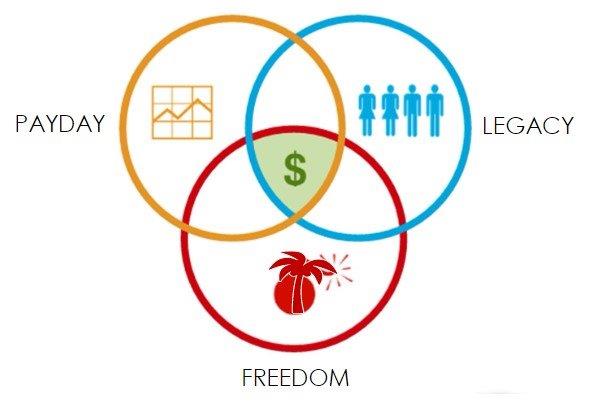Having recently spent an afternoon engrossed in the movie “House of Gucci”, one particular word that I paid attention to throughout was “LEGACY”. The notion of leaving something (upon your Exit) to be proud of, for the next generation/s (whether this be family or not) to continue and build on, was certainly one of the key storylines. Even though the Gucci story, in particular, turned ugly and lethal, the notion of Legacy for many other Business Owners does not appear to get the level of consideration it deserves, especially if there is no family member willing to take up the mantle when the Owner will/can not.
In addition, during one of the 2021 Melbourne-style lockdowns, I spent some time catching up on the latest from Changethis.com, with Decoding Family Business striking a chord. Not so much in terms of the insights, it provided (which I also agree with) but more about the greater meaning and therefore impact of “family”, whether the actual family members work in the business or not. Working with many businesses of all shapes and sizes over 10 years of Business Brokering, my view is that all business is a “family” business.
“If you’re part of such a [family] business or working for one, the business’s uniqueness will be no surprise to you. But that doesn’t mean you always understand how and why the business operates the way it does.”
Or even how decisions are made. Or whether, as a long-term employee, you should be included in some decisions, especially when it impacts your future directly… like the Exit of the Business Owner for example.
As noted in Decoding Family Business “… family businesses have three defining characteristics:
-
Some individuals, especially owners, have a huge impact.
-
Family businesses are held together by relationships, which are multidimensional and interlocking.
-
Everyone’s behavior is shaped by system dynamics, some of which you may not even realise.“
Remove the word “family” in regard to these points, and you could be talking about most small businesses going about their work, possibly in silence, where individuals can also be long-term employees (as opposed to direct family).
To be able to really unpack the desires and feelings of the Owner and associated loved ones is paramount to a successful sale of the business when it comes to Exit. But, so is the importance of the impact on long-serving employees, and customers, and suppliers. Each of these may ultimately influence the Business Owner, whether explicitly or not, in the details of the deal being agreed and the subsequent signing of a Contract of Sale in terms of formalising the decision.
Where long-serving employees, and customers, and suppliers are not family, even though sometimes they may be referred to as such, they are nonetheless the community that keeps the business alive and ticking. And it’s highly likely that they do/will have a vested interest in what happens to the business when it’s time for the Owner to move on.
Part of the Art of being a good Business Broker (which you must be to last 10 years in this industry) is to fundamentally understand the driving forces behind the decision-making within the business context, especially at Exit time.
In my experience, there are typically 3 reasons why an Owner/s is looking to sell:
-
PayDay
-
Freedom
-
Legacy
PayDay is where it all starts. It is after all the most tangible. How much is it worth? How much does the Owner want? How big is the gap? What can be done about it?
And sometimes, it can be where it ends. What is the deal? Terms and conditions? Is this the best we can expect/accept? Time to move on…
However, what I’ve come to learn is that Freedom and Legacy definitely play a strong hand in the final outcome. It’s just that no monetary value can be placed on just how instrumental these are. To not apply the respectful amount of consideration in regard to how the Exit will impact those closest to the business, and who it will impact can come back and bite the Owner, just when they’re hoping for smooth sailing…


